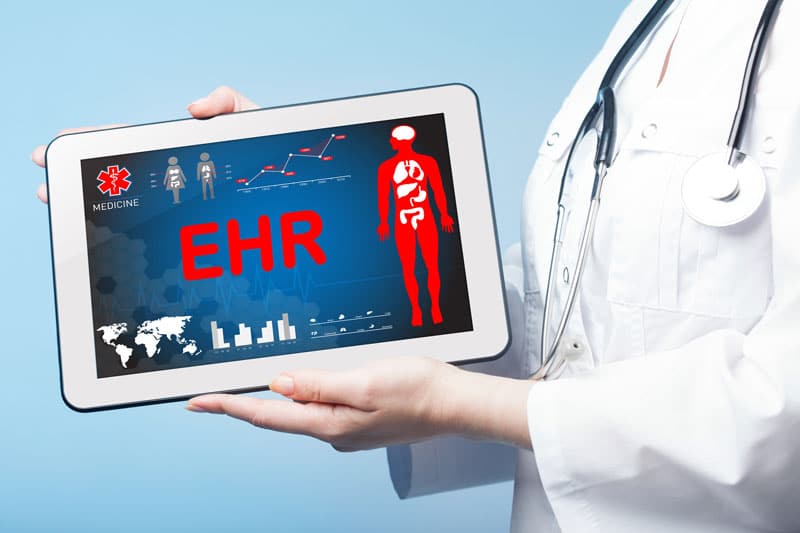
Electronic health records (EHRs) have improved many elements of medical practice. Supported by medical transcription services, the software provides physicians with comprehensive information about a patient’s health status. Specialist practices need specialty-specific EHRs. A specialty-specific system can save time and money, improve productivity and allow physicians to spend more time on patient care.
Why Pediatric Offices Need EHRs with Special Features and Functions
Pediatricians care for a very special group of patients whom they love. They treat children with acute illness, congenital anomalies, chronic illness, seizure disorders, and trauma, providing patient-centered care for infants, children, and adolescents.
Pediatricians are also expected to provide screening services for a wide variety of disorders and have special expertise in areas like preventive oral health, mental health, and hearing and vision screening services. Other key issues pediatric practices may need to handle include vaccine inventory management, time constraints when seeing patients, maintaining patient compliance with the AAP’s recommended screening and assessment schedule and optimizing practice revenue.
A fully integrated EHR that includes medical billing, practice management, and integrates with pharmacy, labs, radiology is designed to enhance ease, speed, accuracy, and transparency of workflow and documentation in medical practices.
However, studies on physicians’ perceptions of EHRs report that pediatricians find EHRs stressful to manage.
A 2019 study on EHR use in pediatric practices reported that though the adoption of EHRs has increased, more than 80% of pediatricians are working with EHRs that lack optimal functionality and 41% of pediatricians are not using EHRs with even basic functionality. The researchers noted that EHRs lacking pediatric functionality affect patients’ health through increased medical errors, missed diagnoses, lack of adherence to guidelines, and reduced availability of child-specific information.
A dedicated pediatric EHR is essential to provide high-quality care for children and help pediatricians efficiently manage everyday activities.
Benefits of Pediatric EHR Platforms
Having an EHR system that is adaptable to the needs of pediatricians and their patients is important to save time, money and provide better care outcomes. A pediatric-specific EHR system is fully featured to tackle many issues that providers face:
- Ability to update sibling history and create multiple sibling charts: Updating family history is important in pediatric care. Family health history can identify people with a higher risk of contracting common disorders, such as heart disease, high blood pressure, stroke, certain cancers, and type 2 diabetes. With a pediatric EHR, updating history for all siblings is possible with just a few clicks. Likewise, if siblings visit on the same day, the system will allows the physician to create additional charts while charting one for the first patient. The ability to record and charge multiple sibling charts can increase reimbursement while saving time.
- Vaccine-related functionalities: Not having an efficient system for tracking vaccine administration and inventory can be a major concern in pediatric practices. Child immunizations have a complex schedule. The vaccination record is required at multiple points in a child’s life, during education and up to adulthood. An efficient pediatric EHR would allow the physician to easily update the vaccination component and display in a way that can be shared with families and the educational system. Accurate records are also essential to submit vaccine information to state immunization registries. Further, a pediatric EHR would allow efficient management of vaccine supplies including tracking expiry dates and projecting future requirements, to optimize cash flow.
- Tracking growth: Pediatric EHR software includes growth charts from the National Center for Health Statistics to track children’s growth. When assessing progress, the appropriate growth chart can be attached to the patient’s record.
- Medication management: Variables such as weight and age are key considerations when writing prescriptions for pediatric patients. Pediatric EHRs should be featured to automatically provide the correct dosing amount based on these factors. It must also include alerts for patient allergies and drug interactions.
- Confidentiality for adolescent patients: Adolescents are more likely to see a provider and return for follow-up if they are ensured that their information will be kept confidential. To optimize care for adolescent patients, quality pediatric EHRs are designed to address the confidential needs of these patients. The systems would make it easy to turn on privacy settings when the patient reaches the age of consent, which varies among states.
- Advanced charting features: Child healthcare providers may also document adolescent mental health, reproductive health, and substance abuse, and share this information with other providers. A pediatric-specific EHR that has preloaded templates for all types of sick visits, would allow the physician to easily understand what to evaluate, so that they can provide an assessment, and chart the visit quickly.
EHR documentation methods have evolved greatly with efforts to improve delivery of care and ease the clinical burden. While speech recognition systems and EHR scribe tools allow physicians to document in real time, enhance efficiency, and lessen documentation tasks, error rates are a concern. However, a study published in the Journal of Informatics in Health and Biomedicine in 2020 showed that a digital scribe cannot replace a trained and certified human scribe.
Likewise, using a pediatric-specific EHR along with pediatric transcription services can help physicians make the most of the system. U.S. based medical transcription companies have experts who are well-versed in the procedures, treatments, medical terminology and jargon pertaining to different pediatric conditions can provide accurate and timely EHR-integrated documentation of history and physical exams, laboratory tests, diagnoses, operative procedures, discharge summaries.


